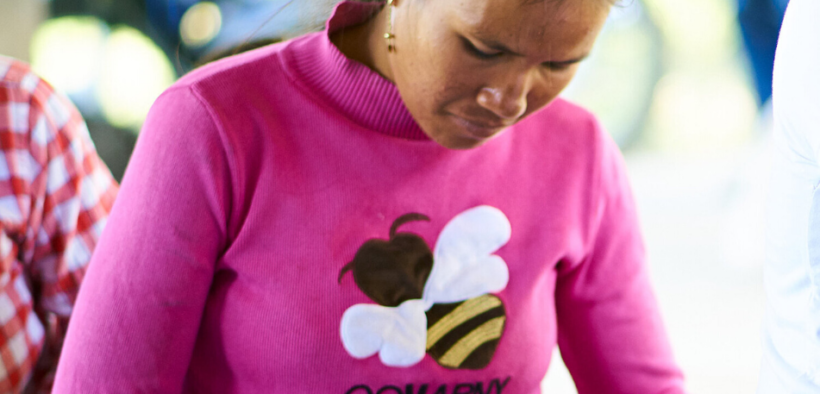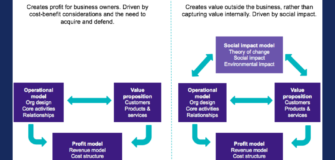No one could have predicted the events that have happened this year.
First, there were the devastating Australian bushfires, followed by a series of other extreme weather events that spread to every corner of the country. Just when we thought the worst was over, and we all started to pick ourselves back up again, a new challenge has hit us – the novel coronavirus, or COVID-19.
COVID-19 has spread quickly, leading to the forced closure of thousands of small businesses across Australia. The Australian Government has acted quickly, introducing billions of dollars in relief to both small business owners, and people who have now lost their jobs due to the economic crisis.
The stimulus package that the government has announced will mean that hundreds of thousands of Australians can stay on their feet, paying for essentials like rent, food and bills.
But what about the small business owners who live in countries where stimulus packages aren’t an option?
Across the world, there are millions of micro business owners who live below the international poverty line of $3.20 per day. Developing countries don’t have the same resources that we do in Australia – they do not have the same level of universal healthcare or income protection insurance, and their governments may not have the resources to provide relief packages to their people should there be a major economic crisis.
What being financially capable means during times of uncertainty
Financial capability is a life skill. It is a combination of knowledge, skills, attitudes and self-efficacy that are needed to make and exercise money management decisions suitable to one’s circumstances and priorities. Without financial capability skills, it is difficult to manage your own finances in a way that will safeguard your future.
This is particularly important for those who are vulnerable – those without job security, seasonal workers, and those who earn a low amount of income to begin with. For this group of people, particularly micro and small business owners in developing countries, it is imperative to have an emergency savings for when things go wrong.
Coronavirus or COVID-19 is a prime example of an unforeseen circumstance where having savings could be the difference between a family staying on their feet, and having enough money to pay for food and rent, or going into debt and potentially losing everything.
With no external support, and business slowing down due to customers losing their jobs and a dramatic decrease in tourism around the world, what can these micro and small business owners do to ensure they can protect themselves and their families from such a huge loss of income?
What can be done?
There’s some good news! While many micro and small business owners around the world may not have access to the same support from their governments during the COVID-19 outbreak, nonprofits like Good Return have been working for years to equip low income families with the skills to survive in this type of situation.
Good Return promotes women’s economic empowerment organisation through a strong focus on financial capability development. We run a number of programs specifically designed to enable people in low-income communities to adopt more effective money management behaviours.
Our Consumer Awareness and Financial Empowerment (CAFE) Initiative is a unique example of how financial capability training can set micro and small business owners up for financial security in uncertain times, like the period we are facing now.
CAFE supports individuals to identify their own financial priorities and work towards them as specific financial goals. The program aims to build individuals’ capability and confidence to plan ahead, budget, seek information, and make better financial product or service choices. There is also a specific focus on helping individuals to create a plan to protect their families against financial shocks and emergencies. This enables them to make informed financial decisions that will not put their situation at risk, instead helping them achieve their goals for themselves, their businesses, and their families, and planning for unforeseen circumstances.
By learning how to budget and save for the future, CAFE learners are well-equipped to deal with financial pressures such as medical expenses or a decrease in their earnings arising from a loss in business.
By supporting Good Return’s CAFE program, you are helping to empower micro and small business owners, and their families, to have adequate savings to keep themselves afloat. No one can predict what lies ahead for the world during the COVID-19 outbreak. But one thing that is certain is that we need to work together to help those most vulnerable to survive during this crisis.
Recently returned from working in Phnom Penh, Pasqualina is a skilled and enthusiastic professional working in the development sector. As a communications professional for Good Return, she coordinates and develops creative and engaging content to promote financial empowerment programs.
Good Return’s mission is to enable those living in poverty to achieve economic empowerment. We do this by working in partnerships that innovate and strengthen financial services and provide economic opportunities for those living in poverty across the Asia-Pacific Region.


































































































































































